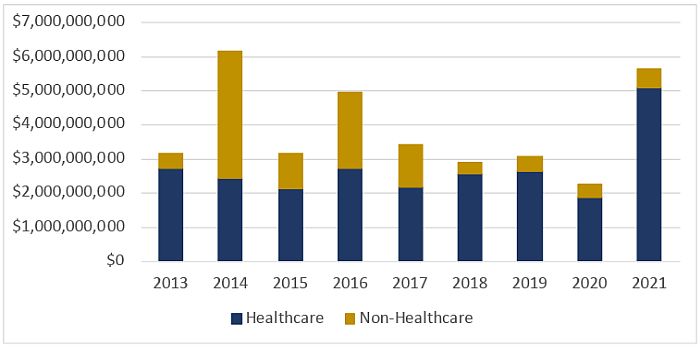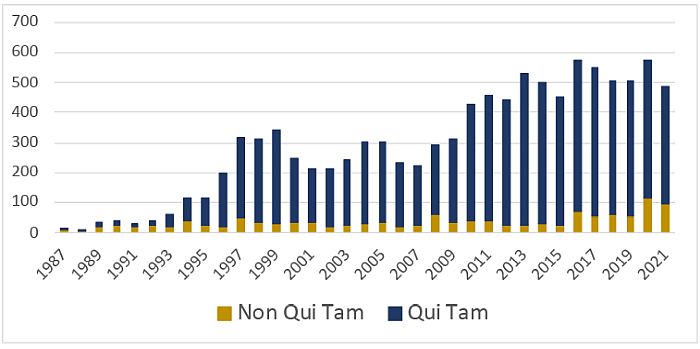On February 1, 2022, Acting Assistant Attorney General for the DOJ Civil Division, Brian M. Boynton, announced that the Civil Division recovered over $5.6 billion in settlements and judgments under the False Claims Act ("FCA") for fiscal year 2021. This is the second largest annual total in FCA history and a significant increase from the $2.2 billion recovered during fiscal year 2020. Detailed statistics on FCA recoveries from 1986 through FY 2021 are available here.
A few observations on the latest statistics:
- More than $5 billion of the total recovery (almost 90%) is attributable to cases involving fraud in the healthcare industry. This continues a trend from recent years of FCA recoveries being dominated by the healthcare and life sciences industries.

- More than half of the healthcare-related recoveries in FY 2021 stemmed from the government's pursuit of opioid-related claims. DOJ also prioritized investigations related to the Medicare Advantage program and claims that plans and healthcare providers made patients appear sicker than they actually were.
- More than $1.6 billion of the total recovery came from qui tam lawsuits filed by whistleblowers. This is a much lower portion of the total recovery than in recent years.
- Despite the increase in recoveries, the number of new matters,
including qui tams, declined compared to FY 2020 by 14% -
though 2020 was a record year for DOJ-initiated actions, and the
number of DOJ-initiated actions in FY2021 was still second highest
(second only to 2020).
- The recent increase in the number of FCA suits that are brought directly by the government has been supported by DOJ's greater ability to use CMS data to identify potential signals of fraud and abuse.

- The percentage of suits initiated by DOJ continues to be lower in healthcare fraud matters than in other kinds of qui tams. Only 20% of FCA suits in the healthcare context are DOJ-initiated.
- DOJ settlements and judgments in DOJ-initiated cases hit an all-time high.
The content of this article is intended to provide a general guide to the subject matter. Specialist advice should be sought about your specific circumstances.


